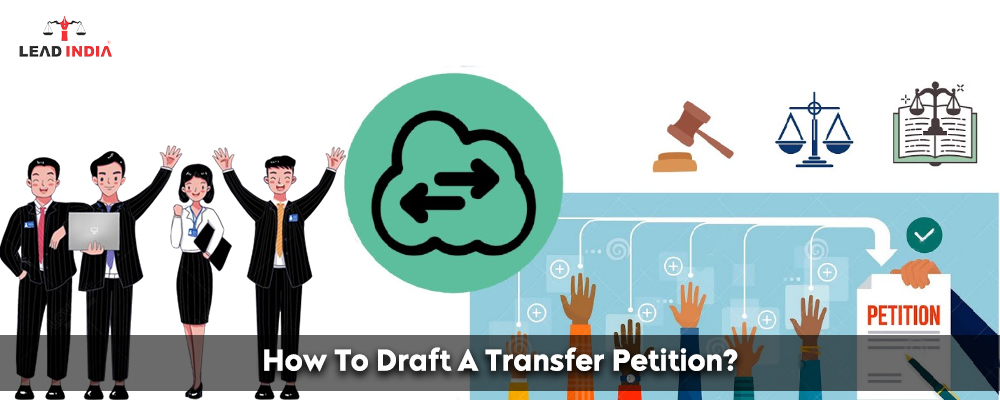According to Indian law, the parties to a lawsuit or appeal may be able to move the lawsuit from one state to another by submitting a petition through their lawyer. The court can determine whether to grant the transfer petition only if it considers that the transfer is necessary for furthering the principles of justice.
The term “transfer of petition” describes moving a lawsuit from one state or city to another. The Transfer Petition is submitted to the High Court when a matter needs to be moved within the state. A transfer of petition is required to be filed before the Supreme Court in the event that the matter needs to be moved from one state to another. The Supreme Court is authorized to handle such transfers.
An individual should always know how to draft a transfer petition before drafting it. He or She can always take the help of a lawyer to help them know about the transfer of petition.
Need A Legal Advice
The internet is not a lawyer and neither are you. Talk to a real lawyer about your legal issue

The Steps for how to draft a transfer petition are as follows
- Giving a Brief Overview of the Case: It is essential that you submit a brief and straightforward summary explaining the grounds you desire to raise before the Hon’ble Supreme Court. Your summary should be clear, concise, and limited to the facts that support your request for a transfer.
- Mentioning the Specifics of the Case: Indicate all the information about the case you want transferred from one court to another, along with the court you want the transfer requested.
- Highlighting the Grounds for Transfer: Indicate the reason(s) for your potential request for a case transfer; the reasons are listed below.
- Transfer of petition due to discrimination in the region.
- The husband’s family has a lot of power and will obstruct impartial proceedings.
- Danger to life, having influence is a suitable pretext for posing a threat to life.
- Living alone as a woman without assistance.
- Another solid reason to request a transfer is if the father’s side is unsupportive.
- Past medical history.
- elderly parents who are ill.
- No source of income; if the wife is not employed, this is a nice place to be.
- Concurrent jurisdiction.
- Praying for Interim Relief: Additionally, if you want to request a transfer, you must ask for an interim relief or a suspension of the case’s proceedings.
Circumstances for Transfer of Petition
For the benefit of the parties
If the parties believe it would be inconvenient to appear in court at the court where the action was first filed, they may request a transfer.
For the sake of justice
If a party feels that the matter is unlikely to be determined in the court where it was initially filed, they may request a transfer.
To prevent contradictory rulings
If there is a chance that cases with comparable facts and issues would result in contradictory rulings, a transfer may be requested.
Ensure Justice and Fair Trial
To ensure that justice is given in a timely manner and to speed up the legal procedure, a transfer may be requested.
Every presumption can be contested at a fair trial, which is one in which the judge upholds the correct courtroom processes, the accused has knowledgeable counsel, and the rules of evidence are respected. A trial is not deemed free and fair if the parties are dissatisfied with the way it was handled in court and if they are unable to voice every potential objection. The law is made for the people; individuals are not formed for the law. Because of this, our legal system has rules that allow a case to be transferred from one court to another while taking the relevant facts, circumstances, and processes into account.
For any type of legal assistance, one can speak with a lawyer from Lead India. Lead India provides free online legal advice in India. With Lead India, one can ask free online questions of the experts in addition to getting free legal advice.





 Talk to a Lawyer
Talk to a Lawyer